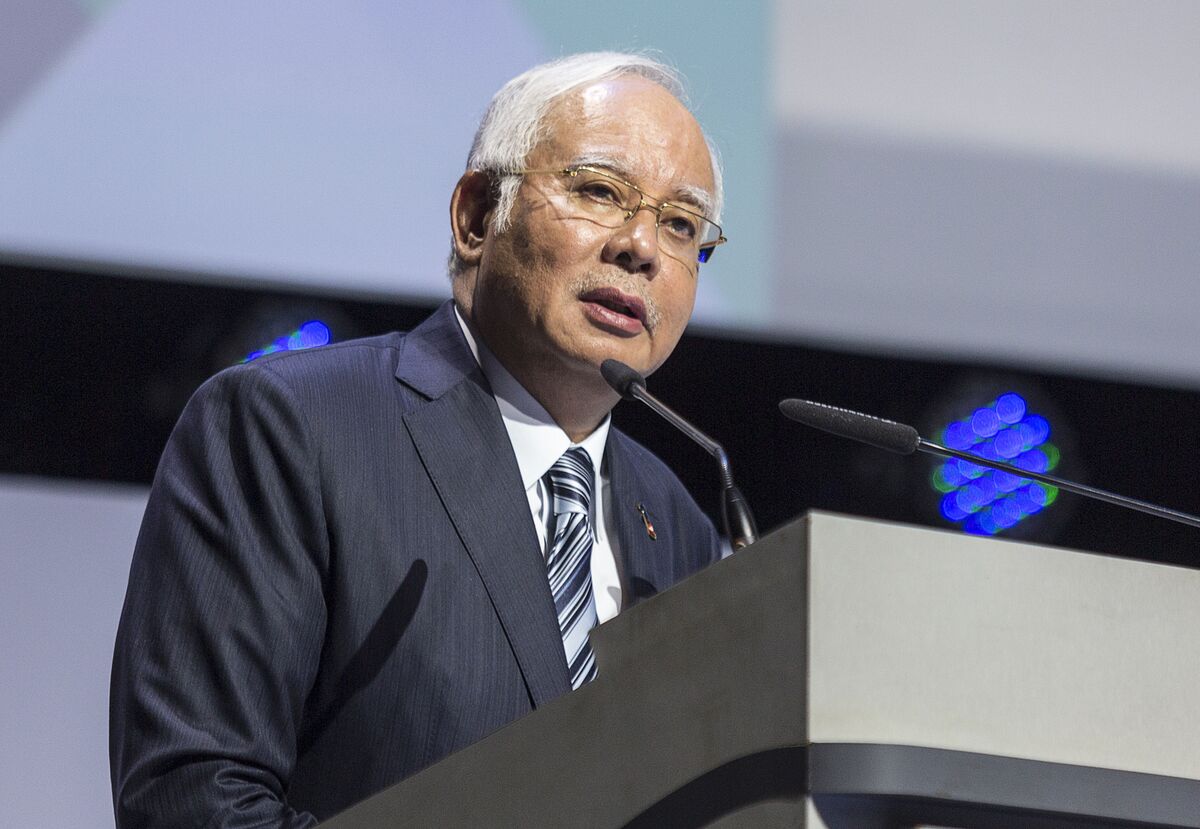
Prime Minister Najib Razak made targeted allocations to potential swing voters in the final budget before a general election, an attempt to boost disposable incomes for Malaysians facing rising living costs.
Calling it the “mother of all budgets,” the premier on Friday offered goodies -- tax cuts for the middle class and bonuses for civil servants -- and abolished some road tolls in battleground states. He also proposed more maternity leave for women in the private sector and gave students with government loans a longer grace period before starting repayments.
Najib’s United Malays National Organisation and the Barisan Nasional coalition it leads have been in power for six decades, and they face one of their toughest challenges yet in polls that must be held in the next 10 months. While analysts still expect Najib’s government to win a majority of seats, rising living costs threaten to chip away at the ruling coalition’s support.
“The budget aims to target the lower class and middle class who are the core supporters of UMNO and BN,” said Ahmad Martadha Mohamed, an associate professor at Universiti Utara Malaysia. “At the same time, the government also hopes to garner support from Generation Y and women who may be influential in giving support to the government.”
Najib offered an upbeat view of the Malaysian economy but gave few hints on the timeline for elections as the window to hold one narrows. More clues may emerge when UMNO holds its annual general assembly in December.Malaysia’s Budget in Four Charts
While recent independent opinion polls on the government’s support levels aren’t publicly available, his coalition secured a strong win in a key state election last year and has benefited from opposition infighting. Najib highlighted statistics that showed higher median incomes and a narrowing gap between urban and rural households.
Even so, many Malaysians are feeling less secure. There remains resentment over a goods and services tax introduced two years ago and consumer sentiment is well below the level deemed to show confidence.
Malaysia’s Budget in Four Charts
The premier focused on his key support groups in the budget, funneling funds to farmers and fishermen, pensioners and rural voters. Still, a pledge to narrow the fiscal deficit meant that some programs didn’t get additional funds, contrary to analysts expectations.
One was the BR1M initiative, which gives cash handouts to low-income groups comprising about a quarter of the population. It was the first time allocations under the policy weren’t increased or widened to include more people since it was introduced in 2012.
The dose of pragmatism in targeting certain groups could reflect Najib’s confidence in returning to power without feeling the pressure to give even more to his party’s core low-income base. Equally, it could mean the premier is hemmed in by a need to improve government finances.
Malaysia has a self-imposed debt ceiling of 55 percent of gross domestic product, and the government said it will remain within the limit in 2018 even as its expenditure rises. The fiscal deficit for next year is projected at 2.8 percent of GDP, down from an estimated 3 percent in fiscal year 2017 in line with a pledge by Najib.
‘Feel-Good Moves’
“There were plenty of incentives and feel-good moves such as the income tax cuts while maintaining the discipline necessary to reduce the deficit,” said Sholto Byrnes, a senior fellow at the Institute of Strategic and International Studies Malaysia. “It’s about not making irresponsible promises that would have to be reversed after the election by any government.”
The prime minister increased funds for programs aimed at raising the skills of Malaysians, as well as offsetting interest payments on loans for food trucks and kiosks. Grants were also provided for taxi drivers to purchase a car should they decide to shift to e-hailing services instead.
“These are positive measures because they are long-term solutions, unlike cash handouts,” economists at Malaysian Rating Corporation led by Nor Zahidi Alias wrote in a report. “Our primary concern with regard to BR1M is that it could potentially create a culture of dependency. In addition, it could become a permanent feature and weigh on the government’s balance sheet going forward.


0 comments:
Post a Comment